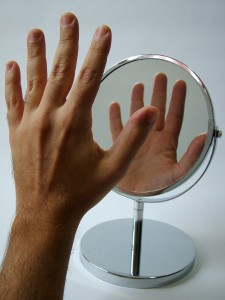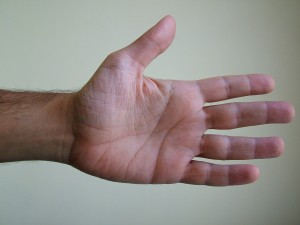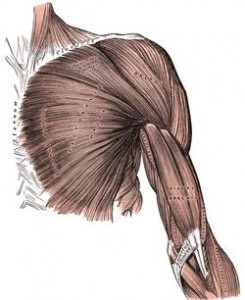 There are two diagnoses in the 2015 International Classification of Diseases which afflict authors. Organic Writer’s Cramp and Occupational Neurosis. The former is caused by natural deformations or weakness in the hand and wrist. The latter is caused by gripping a pen too hard, pressing down too hard, or holding the wrist at an awkward position when writing by hand. Insurance may pay for physical therapy treatment for either diagnosis with a doctor’s prescription.
There are two diagnoses in the 2015 International Classification of Diseases which afflict authors. Organic Writer’s Cramp and Occupational Neurosis. The former is caused by natural deformations or weakness in the hand and wrist. The latter is caused by gripping a pen too hard, pressing down too hard, or holding the wrist at an awkward position when writing by hand. Insurance may pay for physical therapy treatment for either diagnosis with a doctor’s prescription.
In 2015, it is rare for authors to write out their manuscripts by hand, so I’m surprised they didn’t update the classification to specifically target computer users. Perhaps the next edition will include computer thumb. I think it’s funny that hand pain can be considered a mental disorder rather than a physical one.
 There are multiple reasons why you might experience numbness or pain in your fingers, hand or wrist. Muscles in the hand can cramp and get overused. Wrist pain can cause numbness in the fingers due to inflamed tendons passing through the wrist bones. This is known as carpal tunnel syndrome and recognized as an occupational hazard for writers. The same symptoms can also come from postural issues such as holding your elbows too far out from your body as you type, sitting with hunched shoulders for long periods, or from holding your neck too far forward.
There are multiple reasons why you might experience numbness or pain in your fingers, hand or wrist. Muscles in the hand can cramp and get overused. Wrist pain can cause numbness in the fingers due to inflamed tendons passing through the wrist bones. This is known as carpal tunnel syndrome and recognized as an occupational hazard for writers. The same symptoms can also come from postural issues such as holding your elbows too far out from your body as you type, sitting with hunched shoulders for long periods, or from holding your neck too far forward.
A few years ago I became unable to write by hand for more than two or three minutes at a time because my hands would go numb. My hands also “fell asleep” at night and at least once I woke up from a dream in which my hands were tied to my side only to find my arms numb from the elbows down. Shaking my hands and putting them behind my back or in my back pants pockets were methods I used to get feeling back into my hands.
Try to stop the numbness and tingling as soon as you notice it. This is not a pain you can work through. While it is possible to get cortisone shots to ease the pain, you may continue to stress the area. Both numbness and tingling indicate there is not proper circulation to the area. If your symptoms continue or are severe, it may be helpful to see a doctor or a physical therapist to get a more precise cause of your problem and to make sure there are not any cysts or other physical problems which need medical attention.
But before you rush to a doctor, here are some recommendations for self-care:
 1) When you use a computer, try to keep your elbows close to your side, bent in a right angle, and your wrists relaxed, but not bent upwards or downwards.
1) When you use a computer, try to keep your elbows close to your side, bent in a right angle, and your wrists relaxed, but not bent upwards or downwards.
2) When you write by hand, also keep your elbows close to your side, and try not to grip the pen or pencil too hard. Keep your grip relaxed as much as you can.
3) The higher your levels of pain, numbness and/or tingling, the more frequently you should give you whole arm a gentle shake-out. Try to do it as soon as you notice you’re having a problem. Pay attention to how you’re holding your hand, wrist, shoulder, and neck while you’re doing it.
 4) As mentioned above, wrist pain and hand numbness aren’t always carpal tunnel syndrome. The problem can start in the elbow, shoulder or, most commonly, the neck, where the nerves that are irritated leave the spine. In massage, we always start work on carpal-tunnel symptoms from the neck and work down to the hand. People have reported surgery to their carpal tunnel area which did not ease their symptoms, because the source was a neck posture that pressed on one of the nerves and/or arteries as they left the spinal area. Very depressing to find out something like that AFTER surgery!
4) As mentioned above, wrist pain and hand numbness aren’t always carpal tunnel syndrome. The problem can start in the elbow, shoulder or, most commonly, the neck, where the nerves that are irritated leave the spine. In massage, we always start work on carpal-tunnel symptoms from the neck and work down to the hand. People have reported surgery to their carpal tunnel area which did not ease their symptoms, because the source was a neck posture that pressed on one of the nerves and/or arteries as they left the spinal area. Very depressing to find out something like that AFTER surgery!
 5) Stretch your fingers into your palm as if you were squeezing a ball. Open and stretch your fingers as if there was a rubber band around your fist, resisting that motion. Do all this slowly, 3 times. This warms up the tendons in the wrist, which in turns creates an easier glide through the carpal tunnel. This is generally the exercise given for finger joints that get stuck as well. Do this in the shower or bath for the added benefit of warmth from the outside in.
5) Stretch your fingers into your palm as if you were squeezing a ball. Open and stretch your fingers as if there was a rubber band around your fist, resisting that motion. Do all this slowly, 3 times. This warms up the tendons in the wrist, which in turns creates an easier glide through the carpal tunnel. This is generally the exercise given for finger joints that get stuck as well. Do this in the shower or bath for the added benefit of warmth from the outside in.
6) Shrug your shoulders. Breathing in slowly, bring them up as high as possible, hold your breath and your shoulders there for 1-2-3 and then relax your shoulders down quickly as you breathe out. Do this 3 times. It will help remind you to keep your shoulders relaxed.
 7) Drink a lot of water while you write (something I recommend regardless of your diagnosis). This will help you want to get up and walk around (well, to the bathroom) more frequently. Movement is very helpful to the arms and hands, not to mention the entire body. Keeping your circulation going smoothly is one of the most important ways to stay pain free.
7) Drink a lot of water while you write (something I recommend regardless of your diagnosis). This will help you want to get up and walk around (well, to the bathroom) more frequently. Movement is very helpful to the arms and hands, not to mention the entire body. Keeping your circulation going smoothly is one of the most important ways to stay pain free.
 8) Hold your arms out to the sides at shoulder height and extend them backwards. Focus on stretching your pectorals, the muscles in the front of your shoulder that stretch when you do this. Shoulders that are hunched forward can cut off circulation in the front of the shoulder, a stoppage that will cascade down to your arm.
8) Hold your arms out to the sides at shoulder height and extend them backwards. Focus on stretching your pectorals, the muscles in the front of your shoulder that stretch when you do this. Shoulders that are hunched forward can cut off circulation in the front of the shoulder, a stoppage that will cascade down to your arm.
9) Standing up with your feet parallel and about 1-2 feet apart (whatever feels stable), swing your arms out, side to side. Slowly at first since you need to test your current range of motion. You don’t want to do anything that hurts. You relax your shoulders with this exercise.
10) If you lie down, spend a few minutes on your back, with your hands at your side, palms up. We do so much of our activity with our palms down and this gives a gentle stretch to both the hand extensors and flexors.
And now, as they say, Write On!
Further resources:
1. It’s Not Carpal Tunnel Syndrome, by Suparna Damany
2. Repetitive Strain Injury: A Computer User’s Guide, by Emil Pascarelli
3. Comfort at your Computer, by Paul Linden

Anything about Writer’s Butt? Since I started writing I’ve had horrible back pain. After trying different chairs, I finally started writing standing up at my kitchen counter. That seems to help. Although I’m sure my arm-to-keyboard position is way off.